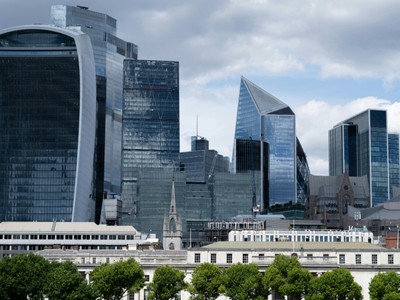Now that Russian tanks really have rolled into Ukraine and hostilities have begun in earnest, it must make sense to try to gauge what this all might mean for our economic wellbeing and for investors in general. Markets do not like uncertainty and unsurprisingly we have seen some wide swings in share prices since the shooting war began. Oil and gas have seen even greater volatility, with gas in particular rising dramatically, even if both commodities have seen falls as well, reflecting the chaotic state of trading in current circumstances.
On the foreign exchange markets, it has been the rouble that has suffered particularly badly as the likely impact of sanctions on the Russian economy is assessed. The more than doubling of interest rates to an eye watering 20% by the Russian Central Bank may have slowed the slide, but at a considerable cost to those businesses and people who need to borrow. The US dollar, in contrast, has been enjoying a resurgence of support, reflecting its safe haven status amongst currencies.
The added upward impetus delivered to the cost of living in Russia should not be underestimated. Not that the West will be immune from inflationary pressures. Higher energy costs will be only part of the story. Ukraine is a big wheat producer, so prices will inevitably rise in this most important of commodities The picture emerging from this conflict is a far from pretty one.
The tension between Russia and Ukraine will inevitably drive investor sentiment for the foreseeable future, so it is difficult to see markets making progress until some sort of resolution is achieved. Even though peace talks have started on the Ukraine/ Belorussian border, it is hard to see such a resolution being of the diplomatic variety, given Putin’s aim of pushing back NATO away from his borders.
Sanctions are being put in place and could continue to be ratcheted up if no progress towards ending Russian aggression is achieved. Some British companies have extensive interests in Russia. BP, for example, is specifically affected, with the government forcing them to divest themselves of their stake in Rosneft at a considerable cost. Shell also has significant interests bound up with Russia, so we can expect some torrid times ahead while the situation there continues to unfold.
All this has rather overshadowed the other recent big news– the dismantling of the final legal restrictions introduced to combat the coronavirus pandemic. Generally, this news has been greeted positively by business, but some dissenting voices have been raised. And we cannot be certain just how much the past two years will have influenced the public’s approach to dealing with coronavirus. It seems that all the events that will influence stock market behaviour contain more than a little bit of havoc at present.



